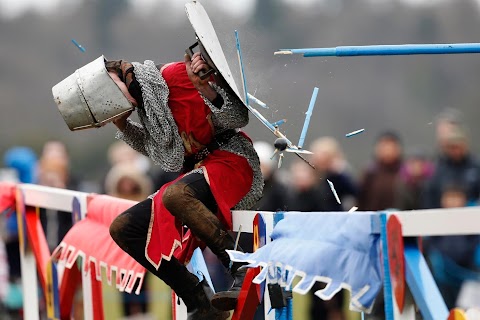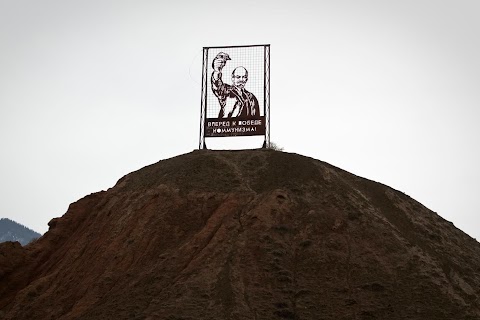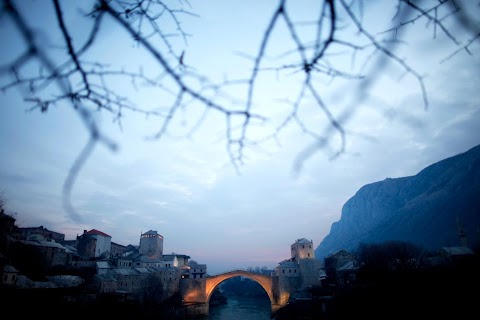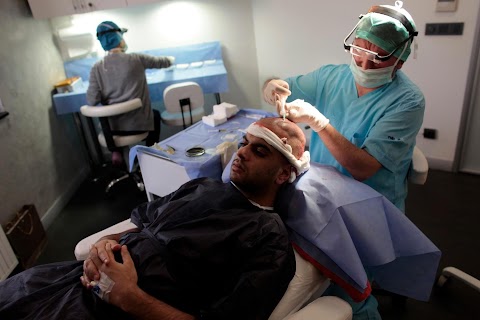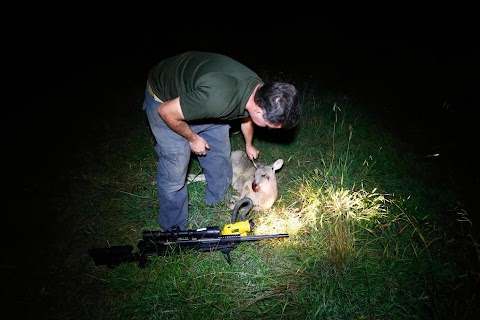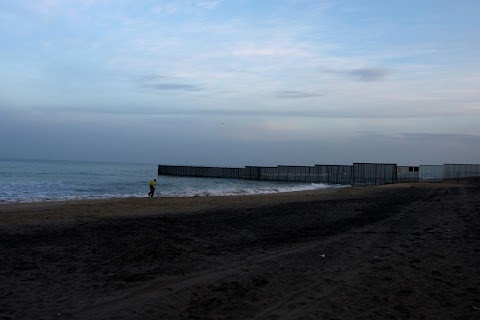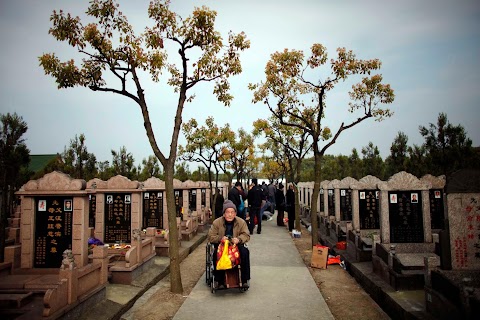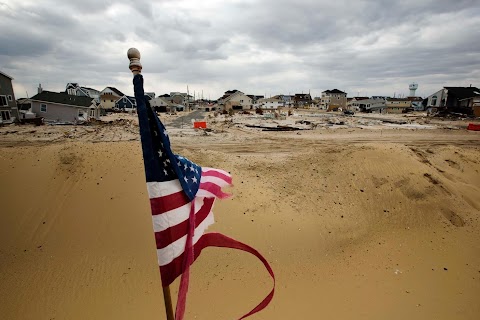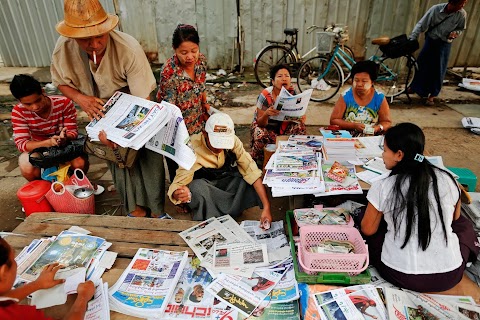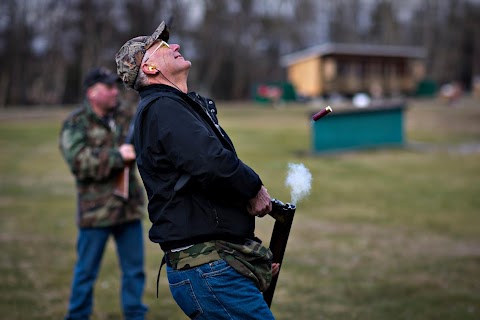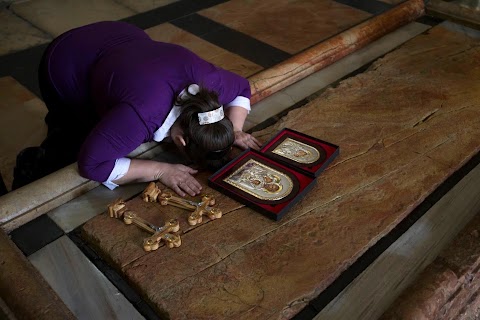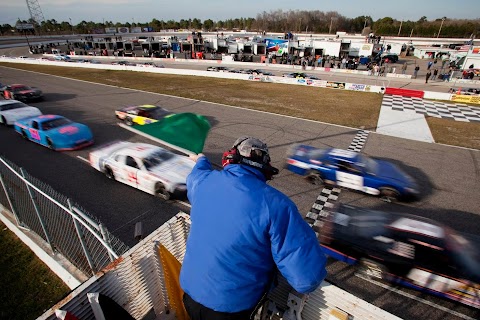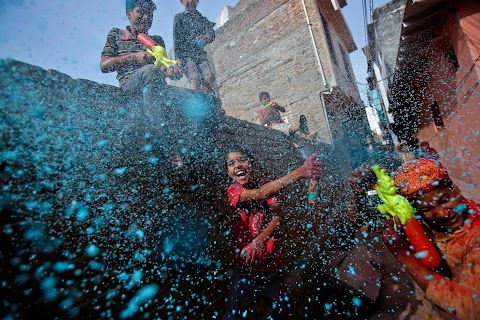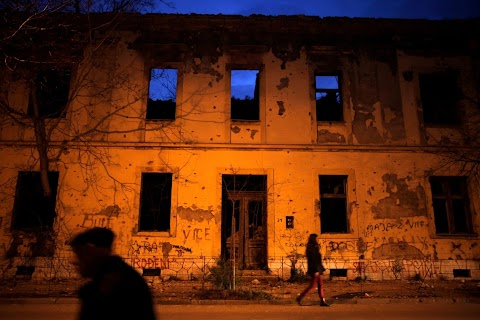
A town split in two
The southern Bosnian town of Mostar is a place politically and ethnically divided. During the 1992-95 Bosnian war, fighting there between Muslims, known as Bosniaks, and Croats was some of the fiercest of the conflict.
Now the two communities are split on the eastern and western banks of the River Neretva, and their politicians are unable to agree on how to fund many public services.



Story
Politicking Paralyses Divided Bosnian Town Of Mostar
The scene was almost reminiscent of the war: Bosnian Senaid Repesa, tired and toothless, stood in line in the bitterly cold hallway of a former army barracks, now a soup kitchen.
Like him, almost 600 residents of the southern Bosnian town of Mostar depend on its two public kitchens for a warm meal and a loaf of bread each day.
"If it wasn't for this, we'd die of starvation," said Repesa, an unemployed veteran of Bosnia's 1992-95 conflict who lives with his two jobless brothers.
It's a lifeline that could be severed within weeks thanks to the town's feuding Muslim and Croat councillors.
Paralysed by politicking, Mostar has entered 2013 without a budget to fund soup kitchens or kindergartens, pay fire-fighters or heat schools. As cash runs out, tensions are rising.
The fighting between Muslims, known as Bosniaks, and Croats in Mostar was some of the fiercest of the war and left them divided on the eastern and western banks of the River Neretva.
The accord that ended the conflict resulted in an unwieldy union of two autonomous regions - the Serb Republic and the mainly Bosniak and Croat Federation - run by a system of ethnic quotas that has stifled economic development and stalled the country's progress towards membership of NATO and the European Union.
Peace has done little to reconcile them.
For months, they have been locked in a row over how to reform Mostar's electoral procedures, forcing the postponement of local elections held across the rest of the country in October last year.
The council has failed to adopt a budget for 2013, and in November last year councillors took the legally dubious step of voting to extend their own mandates in the absence of an election.
When an audit uncovered a larger-than-feared hole in the public coffers, the Bosniak members of the council voted last week, without the Croats, for a 'temporary' financing measure for the first quarter of 2013 to cover the cracks.
ETHNIC QUOTAS
It's a situation that observers say cannot go on, but somehow does, and in many ways is a microcosm of Bosnia in its dysfunction and stunted development.
"I think that the situation in Mostar is very dangerous," said Roderick Moore, an American deputy to Bosnia's top peace overseer and a mediator between the town's rival council members.
With neighbouring Croatia - which like Serbia helped foment the fighting in Bosnia when Yugoslavia collapsed - set to join the EU on July 1, Mostar stands as a grim example of how far the country has fallen behind.
"We have two entrenched blocs holding diametrically opposed views," said Faruk Kajtaz, editor of the independent Mostar current affairs website www.starmo.ba. They "will never reach agreement".
The political and ethnic rivalry is stalling implementation of a ruling by the European Court of Human Rights that would scrap a rule limiting top public office to members of Bosnia's main Bosniak, Serb and Croat communities - a legacy of the peace accord but which detractors say is discriminatory.
Without the change, Bosnia cannot apply to join the EU, but several deadlines have already been missed. Between 2010 and 2012, Bosnia went 14 months without a central government as rival leaders wrestled over a coalition.
In July, Croatia will become the second ex-Yugoslav republic after Slovenia to join the EU. Montenegro began accession talks last year, and Serbia hopes to do the same this year.
EU enlargement commissioner Stefan Fule told the Council of Europe last month it was a "myth" that the EU would "eventually lower the bar" for Bosnia to apply.
ENCROACHING EU BORDER
Bosnia has absorbed some 9 billion euros in foreign aid to help it heal from the war, yet Mostar, a town of 70,000 people, has resisted reconciliation. Each side still has its own electricity provider, phone network, postal service, utility services and university.
Croat and Bosniak schoolchildren attend separate classes, studying from different textbooks.
The latest row over how to reform the electoral code is rooted in a fear by Bosniaks, who are the minority in Mostar, that they will be dominated by the Croats. The Bosniaks want safeguards to make sure they are not out-voted.
The Croats, in the majority, want the town unified.
The dispute shows no sign of being resolved, and the country's Western peace overseers say they will not intervene, reflecting a more hands-off approach by foreign powers in recent years.
"In a few months Mostar will be just 40 km (25 miles) from the EU, and we should be heading towards modern Europe and not back to the Middle Ages," said Sladjan Bevanda, a local Croat political leader. He said the town's mayor, a Croat, might impose the 2013 budget.
Exasperated residents complain that behind the talk of protecting rights lies a naked battle for power and the lucrative networks of patronage provided by such a decentralised and divided system of government in Mostarand Bosnia as a whole.
In January, the situation took a violent turn, when a bomb blast toppled a monument to fallen soldiers of Bosnia's Muslim-dominated wartime army.
The lily-shaped, grey marble monument was erected just last year, after the Croats stirred controversy by unveiling a memorial to their own dead. Both stood in front of the newly-renovated city hall, which councillors on both sides are boycotting because of the rival tributes.
Alen Kajtaz, secretary of the Red Cross organisation managing the soup kitchens, said he feared for the future.
"Mostar's biggest problem is the fight for positions," he said. "When they run out of arguments, then they start laying bombs."








